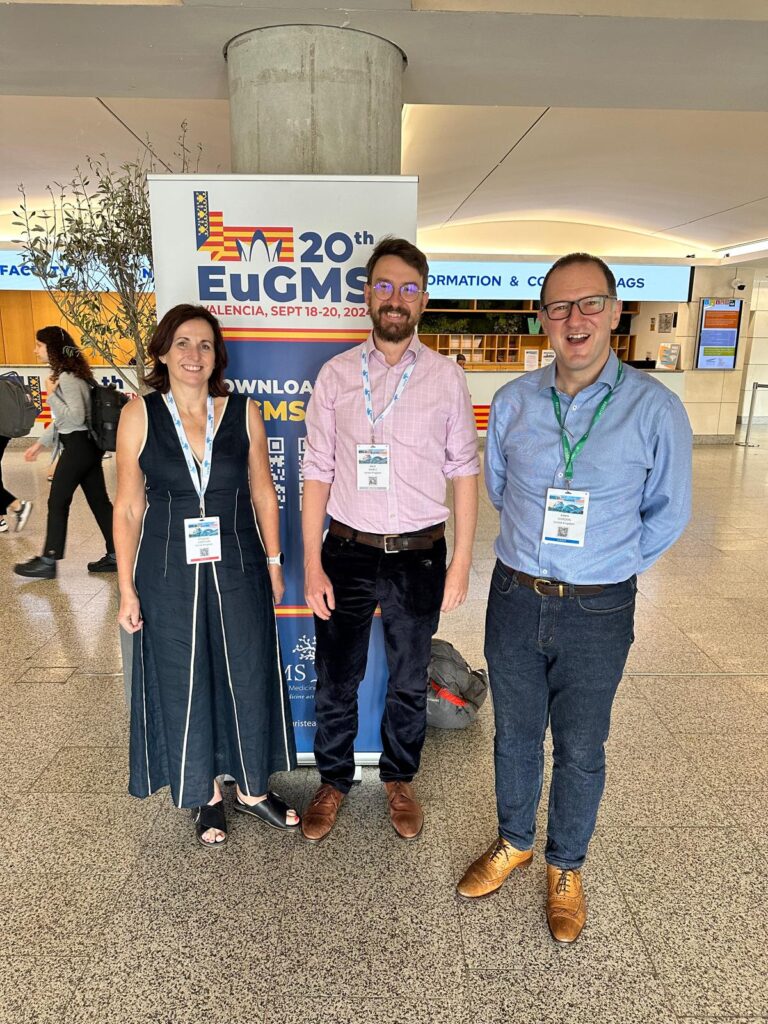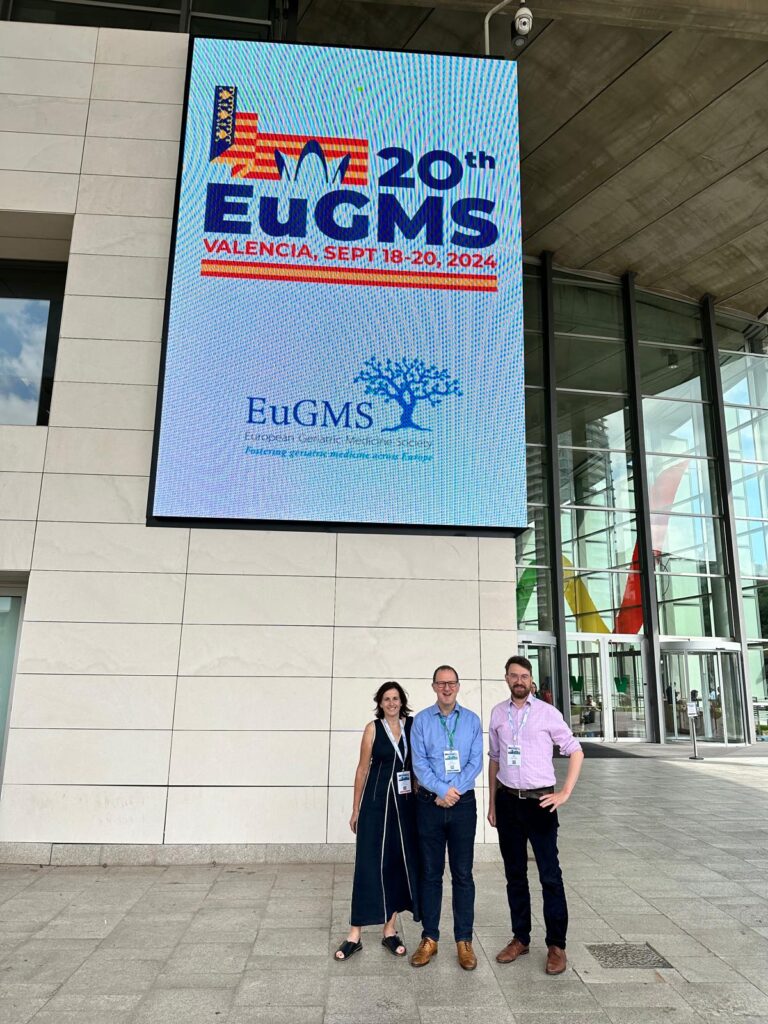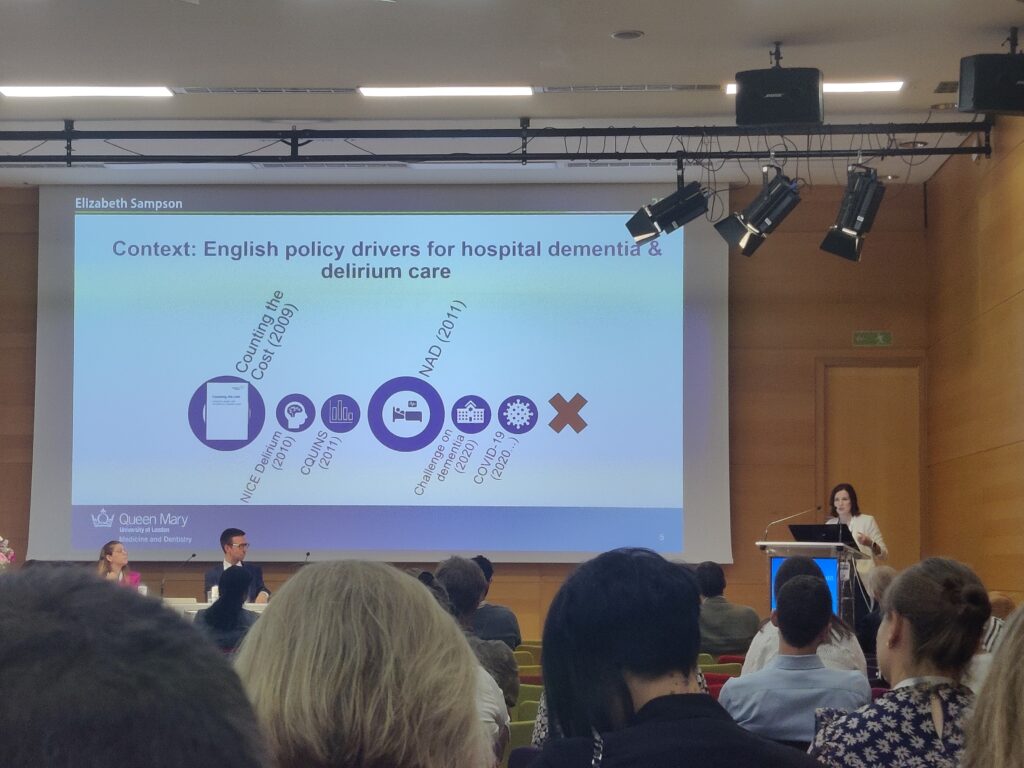Posted on
13 November 2024
Read time
3 minutes

ACHA Amigos: Valencia
Dr Mark Rawle, OPS Research Lead & ACHA Board Member
The Annual Congress of the European Society of Geriatric Medicine is always a calendar highlight, provided your calendar is as focused on ageing research as mine is. This year, academics, healthcare professionals, and advocates for older adults gathered in sunny Valencia to share the latest developments, and of course, ACHA was there. For the record, I was there for the research; the sunshine was a bonus.
Much of Europe shares the UK’s demographic challenges, with ageing populations pushing governments to prioritize healthy ageing. Among explorations of differing models of care, a key theme this year was gerontechnology, or digital innovation in care for older adults. Groups presented near-future solutions, like using portable ultrasounds in community settings to diagnose pneumonia. Others looked further ahead, highlighting the role of AI in care. Though, given the rapid rise of AI (ChatGPT gained 100 million users in just two months, it took Facebook four and a half years) these innovations may be closer than we think.

A pan-European study from the Netherlands demonstrated AI-powered dashboards that predict patient risk based on proposed treatment changes. For example, modifying a blood pressure medication for a specific patient could reduce their risk of future disability by 5%. Rather than turning individuals into statistics, the use of AI allowed complex information drawn from patients to be included in these risk scores; highlighting what was important to the individual and empowering them in their care. Co-involvement was a commonality in work by researchers from Belgium, who presented an exploration of what older adults would like a personal robot to do for them. Opinions were hugely varied. Some people wanted a companion to recommend knitting patterns, others one to take them bungie jumping… although almost everyone thought a robot to make the bed in the morning would be a good start!
ACHA presented four abstracts on our virtual frailty ward, efforts to reduce delirium in hip fracture patients, and work ensuring high-quality pain management for those unable to communicate their needs. Special thanks to QMUL student Siddharth Sasindran for presenting two of these projects, and to abstract authors Dr Dylan Fisher Barry and Dr Oluwafunmilayo Akinde. Professors Gordon & Sampson are already celebrities in these circles, and while they’ll be too modest to admit it, academics and thinkers gravitated to them around the conference centre. Both had their schedules packed chairing sessions and building the foundations of continental collaborations, with Prof Sampson also presenting key work on creating policy change in delirium diagnosis and care in the UK.

Excitement around ACHA’s potential is already growing across Europe. There are high expectations, and frequent mentions of collaboration and visits to our base at Whipps. While there’s pressure to deliver, I’m quietly confident (if a blog counts as quiet). It’s not just because we have top professors and strong support from Barts Charity and QMUL, but also because I’ve seen firsthand the innovative, compassionate approach of our local staff, patients, and communities. Our model brings these voices to the forefront, involving them directly in future innovations, and that’s what’s so exciting. The best part? Europe seems to agree.

Mark is a practising consultant doctor at Whipps Cross Hospital, specialising in geriatrics and general (internal) medicine. He is a fellow of the Royal College of Physicians with full FRCP(UK) accreditation. He is research lead for older person’s services in Barts Health and has a special interest in cognitive health, including Alzheimer’s and vascular dementia, and polypharmacy.





